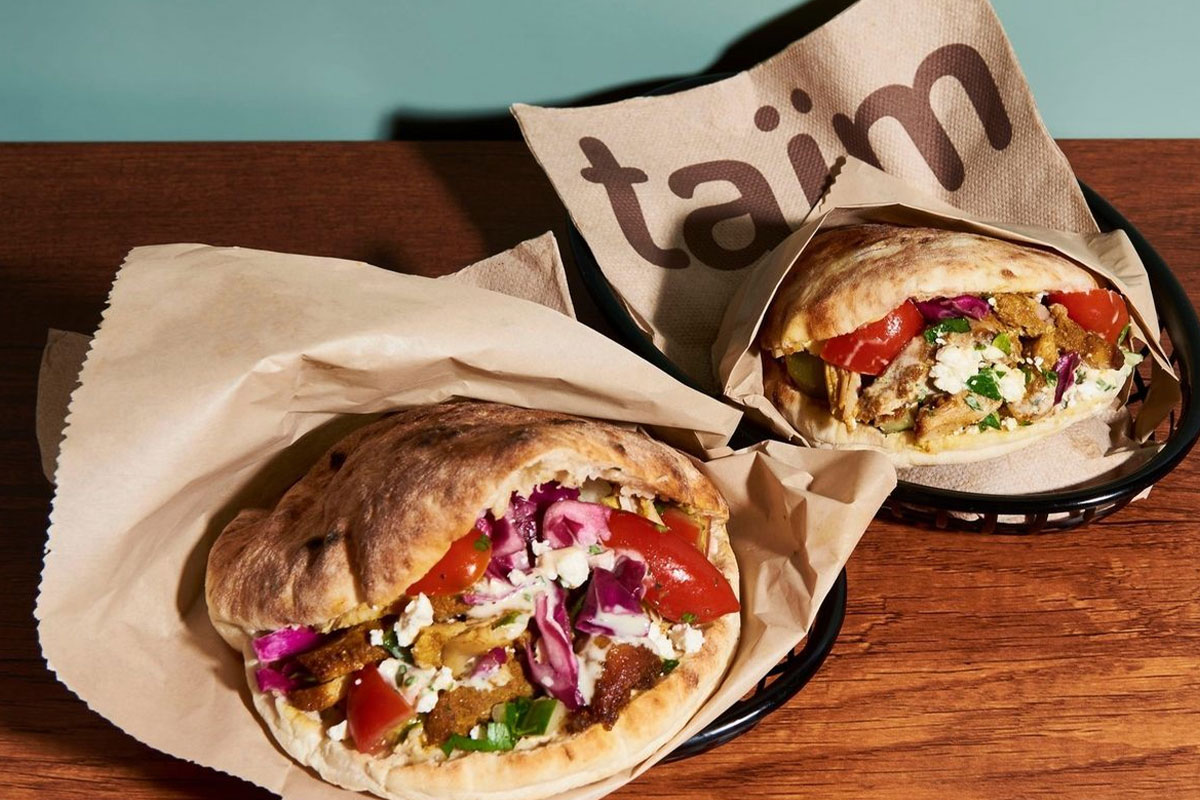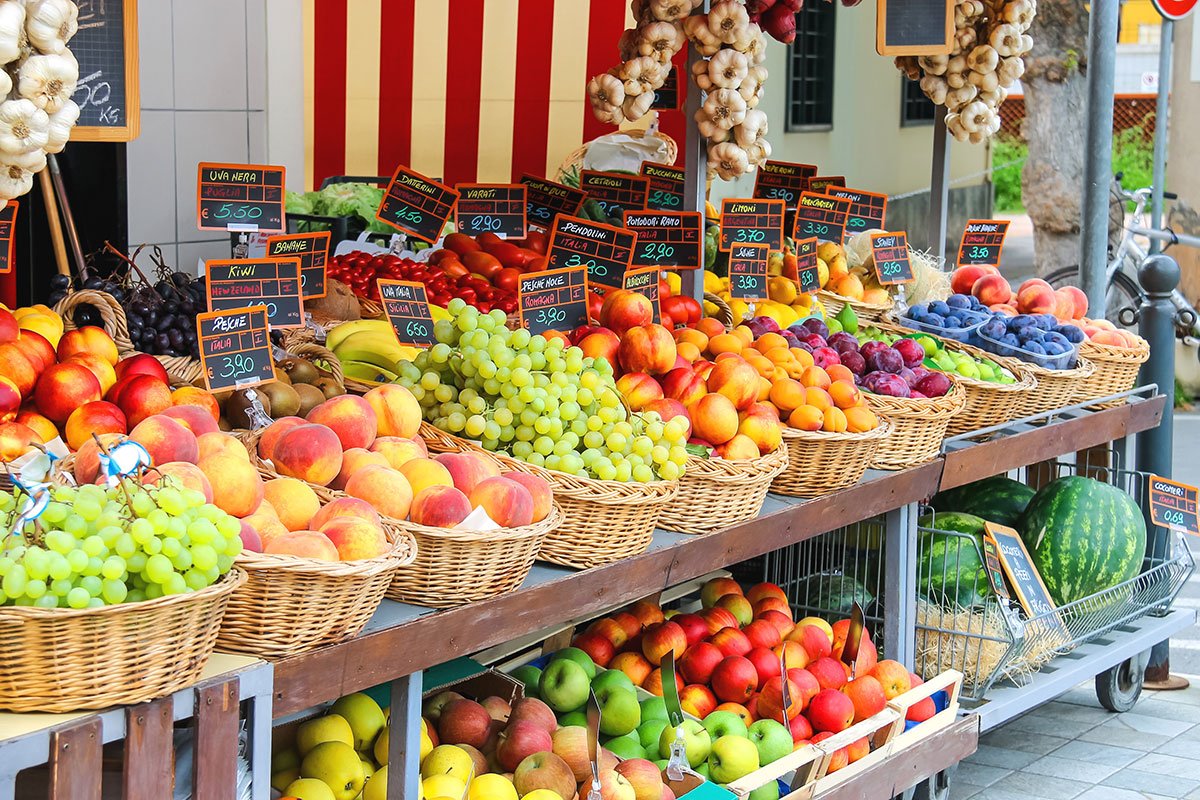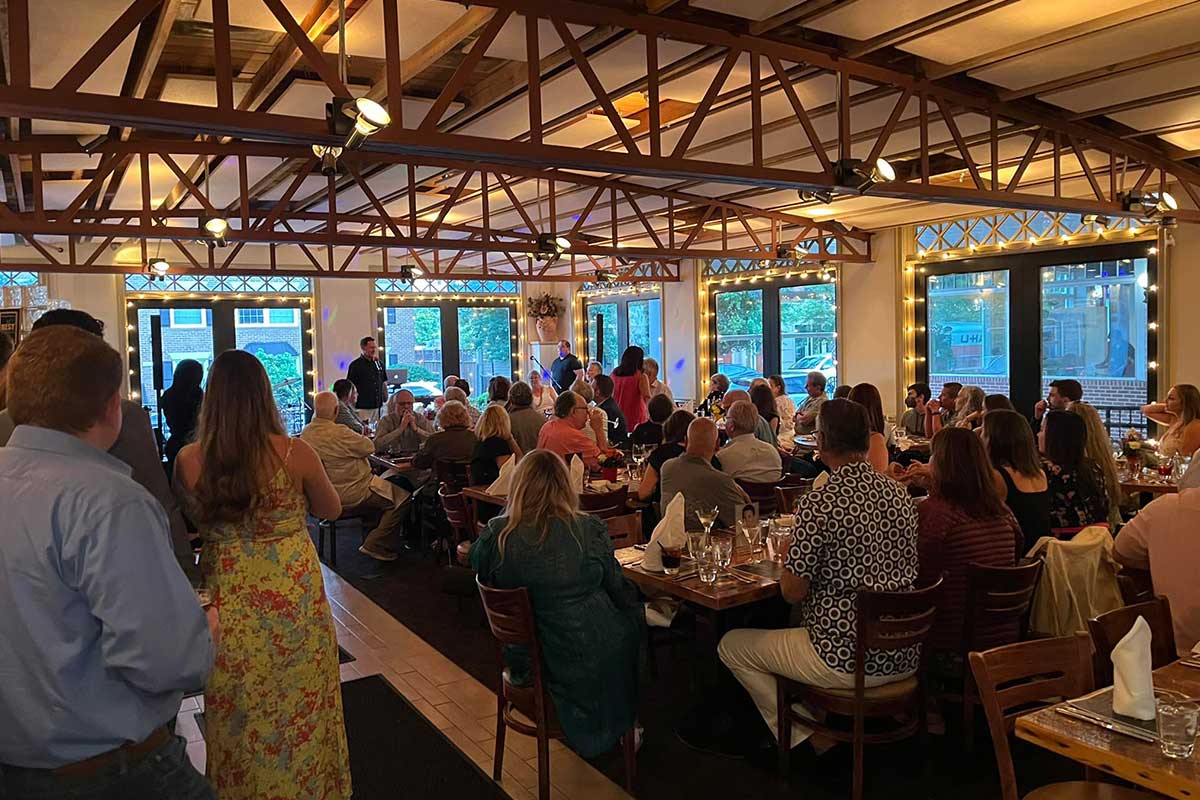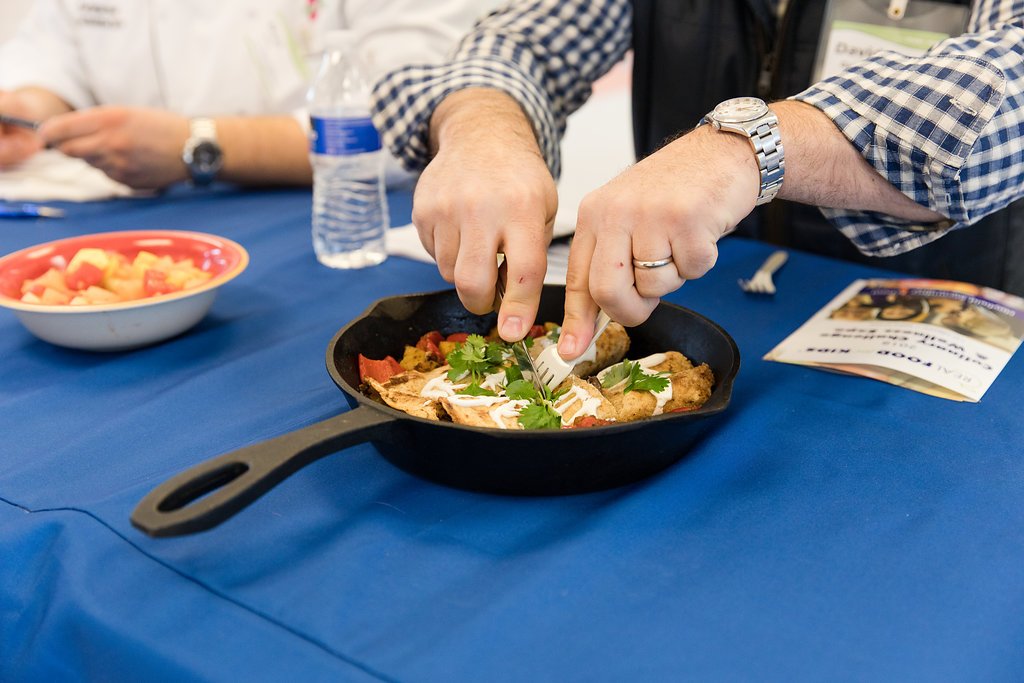
Five teams of middle and high school students from Family and Consumer Sciences classes and culinary academies in Northern Virginia competed in Real Food for Kids’ (RFFK) Sixth Annual Culinary Challenge in March. Now, nutrition directors at five school divisions and DC Central Kitchen (DCCK) are working with their staff to offer the winning dish—black bean taquitos with a roasted veggie medley and a side of chile con fruta—in Fairfax County, Arlington County, Prince William County, Richmond Public Schools, Alexandria City Public Schools and DCCK cafeterias this upcoming school year.
The winning recipe was developed by Marshall High School’s Culinary Academy students Linda Mach, Bryce Daniels, Alex Siviter and Coleman Wirth, under the direction of Chef Ciaran Devlin. “The inspiration came from our school,” explains Mach. “We go to Marshall Academy, but our base school is J.E.B. Stuart…It has a mainly Hispanic population.”
All of the recipes submitted for the competition had to meet the USDA guidelines for school food, which require five components in specific quantities: a milk, a fruit, a vegetable, a protein and a grain. There are also limits on calories, fats, sodium and cost.
“The opportunity for the kids to have to create a USDA-compliant meal is very challenging,” JoAnne Hammermaster, the cofounder and executive director of Real Food for Kids, says. “It gives them awareness about what school food has to do to put something out for students.”
This year, the competition was even more complicated because the theme was Viva Vegetarian, which was specifically requested by school nutrition directors due to an increased student demand for vegetarian options.
“Doing the competition, I actually now understand how hard it is to make food that it is good and healthy at the same time,” Mach says. “We have to worry about all these things that we normally wouldn’t think about when we make food…I really do feel for the school lunch ladies.”
The students also gained an understanding of the possibilities for school food. “I think there is potential for school lunch to get better, because the only thing is you just have to think of flavors that pair well with each other,” Mach says. “We did that with our black bean taquito.”
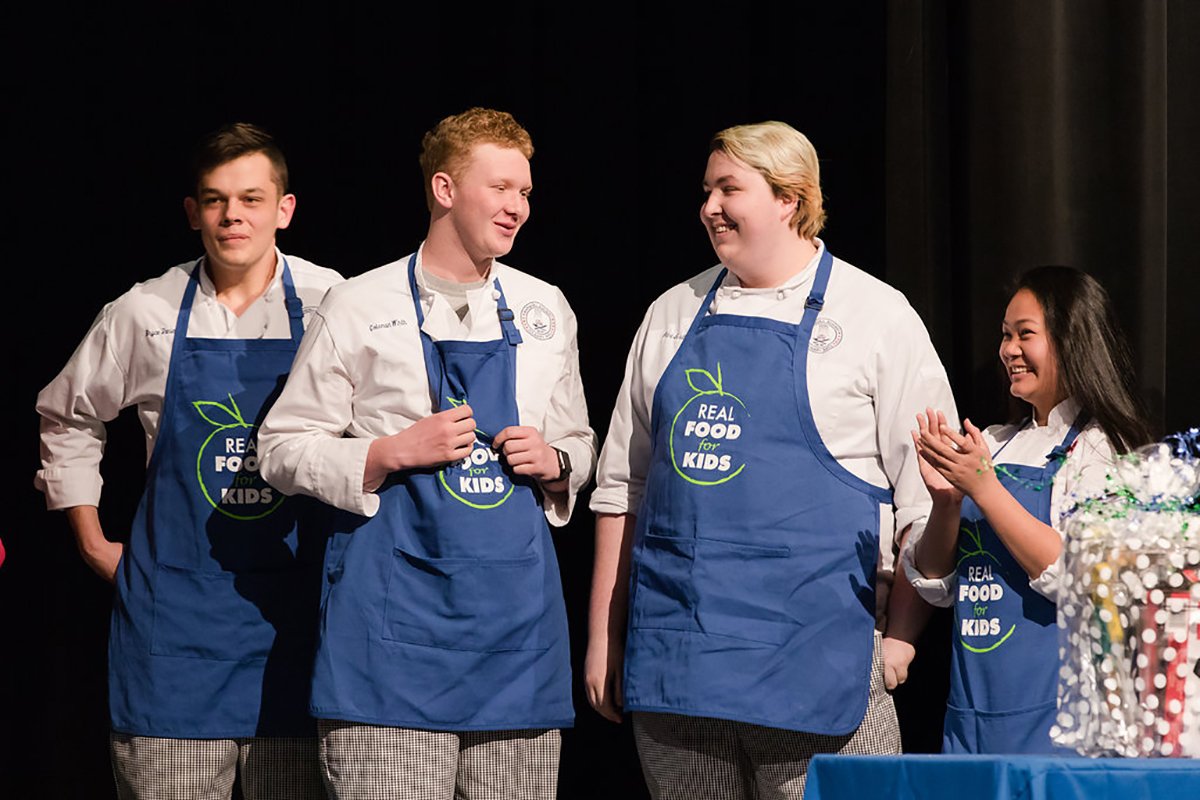
Each student team was judged by a panel of five individuals, including students, a school nutrition official, an RFFK board member and Chef David Guas of Bayou Bakery.
The recipe was then provided to the school districts for adaptation. “We give [it] to our chef and he goes through [it] with a small team just to see how much work goes into it,” explains Rodney Taylor, the Food and Nutrition Service director for Fairfax County Public Schools. “We’re a heat and serve operation. We don’t have the ability to do a lot of scratch cooking and that’s why it goes to my chef first to see if we can put this together with the limited amount of equipment we have.”
Once the development phase is complete, the dish will make its way onto the calendar menu for the 2018-2019 school year. “It could be one of those things where we do it as a monotony-breaker, that maybe on a meatless Monday we do it once or twice a month,” Taylor says.
“It’s mind-blowing that we made a dish that is going to be on the school lunch menu,” Mach says. “We’re so proud that they’re going to be able to try it because we know that it’s so good.”
FCPS is an official partner with RFFK in hosting the challenge and wellness expo, which also features speakers and panels covering topics such as career pathways. “When you learn about food there are different pathways for your future,” Hammermaster says.
Mach and her teammate Alex Siviter, both seniors, were accepted to the Culinary Institute of America and Johnson & Wales University. “I’m planning to go work in a restaurant over the summer before I go to college,” says Mach. She intends to start her studies at Northern Virginia Community College to save money before attending JWU.
In future years, Hammermaster would like to reward the students on the winning team with scholarships or other opportunities. “We’re always looking for sponsorship or help to give students incentive.”
She also plans to continue having the winning recipes implemented by local school divisions, with more creative challenges in the future. “There are so many different cultures in the schools now,” she says. “How do we try to incorporate some of those flavors into new ideas for students for lunch?”
The overarching goal of RFFK is to get students engaged in the subject of school food. “They’re the end customer, right? So, it isn’t just about putting food out there. It’s putting food out there that looks appealing to students, that has a healthy nutrient profile and that the kids will eat,” Hammermaster says.
“I’m naive enough to believe that my job goes way beyond the cafeteria,” Taylor says. “We could be a catalyst for change in the community by partnering with groups like RFFK to promote healthy eating.”


